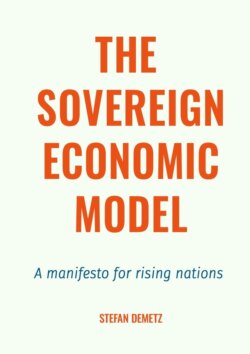Читать книгу The Sovereign Economic Model. A manifesto for rising nations - Stefan Demetz - Страница 20
State capitalism
State Capitalism as Guided Capitalism
ОглавлениеState capitalism is usually wrongly associated with communism. In that system, the state owns any type of business activity with central planning of labor and input/output. Communism has been shown as effective only in certain situations with heavy crises or a war economy. In that context, the state needed to direct all resources and lots of production in a predetermined direction, such as rearmament or postwar recovery and reconstruction. Mostly forgotten is the use of state capitalism in the post-war recovery of Europe and East Asia after World War II. Then, state-led development corporations and state-owned enterprises (SOEs) rebuilt economies ravaged by war.
Despite its supposed similarity to communism, all countries practice some form of state capitalism, or economic interventionism. Some openly admit and carry it as part of a national economic model. Such countries might be from the former Soviet or communist bloc, or countries formerly associated with the USSR. Some less advanced countries also favor employment over other economic factors. Self-declared liberal countries apply ad hoc economic interventions for corporations «too big to fail» or «too important to fail,» or they apply corporate welfare to please extremely powerful lobbies, which results in various forms of economic distortion. Here the state uses subsidies, regulations, and price controls to help national companies, erect non-tariff hurdles to ward off foreign competition, and fix prices to protect an industry or wages (minimum wage) that secure some social stability. Tax credits, tax incentives, and tax exemptions are used to support business sectors or regional areas or to help establish new industries. For example, in the green energy business, less environmentally friendly fuels and fossil fuels are penalized. Regulations can elevate local standards in ways that leave foreign companies struggling to keep up or require huge expenses to realign. Others, especially those with wealth created by natural resources like oil, gas, and mining, have created sovereign wealth funds to hoard profits from the extraction industries.
Another good reason for state capitalism is that the government can act similar to the spring in a car’s shock absorber and like a rudder on the economy to absorb economic shocks and volatility and to steer some business practices. For example, a government can require the use of certain national technologies to improve the economy instead of letting companies choose. This might not be efficient in the short term, and it may cost some private companies’ profits, but it can be a winning strategy in the long term because such policies ultimately build up domestic industries. It is a trick to effectively make some industries subsidize others.
Is state capitalism too top-down? One mistake of communism is its desire to control all business activity, down to individual small businesses. State capitalism instead wants to control the major strategic sectors of the economy and regulate some others. Instead, in non-strategic sectors, such as light industry and services, the sovereign state should make rules that foster innovation and competition. This can be accomplished through low taxes and regulations, strong competition, and antitrust law. Other measures, too, are implemented to allow business to flourish without interference.
